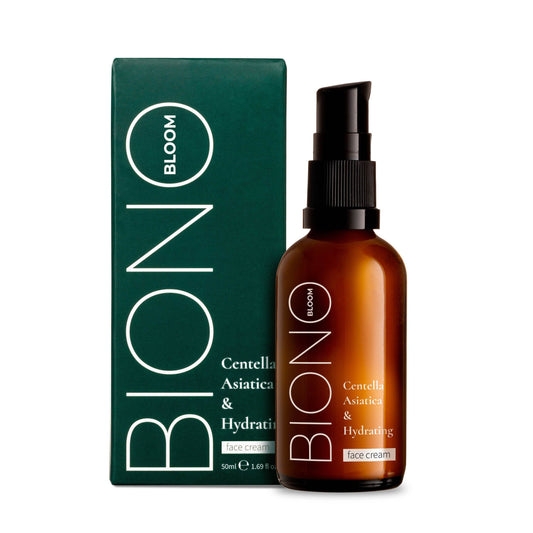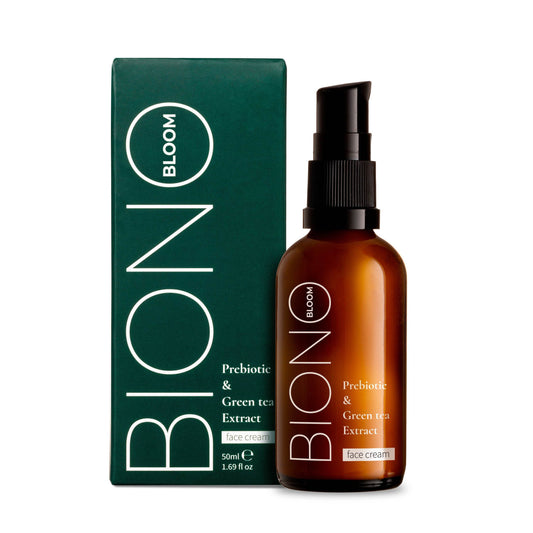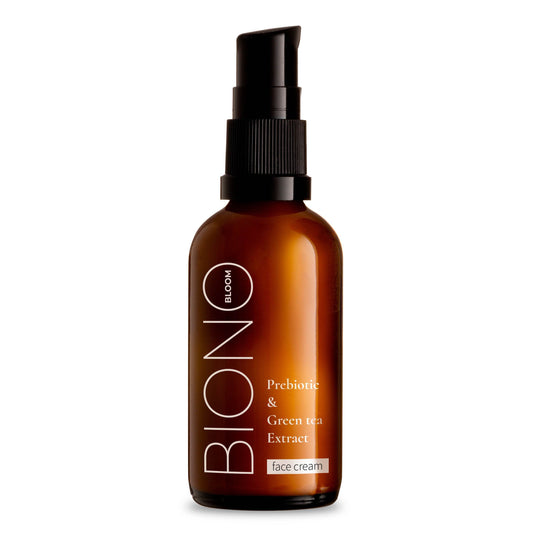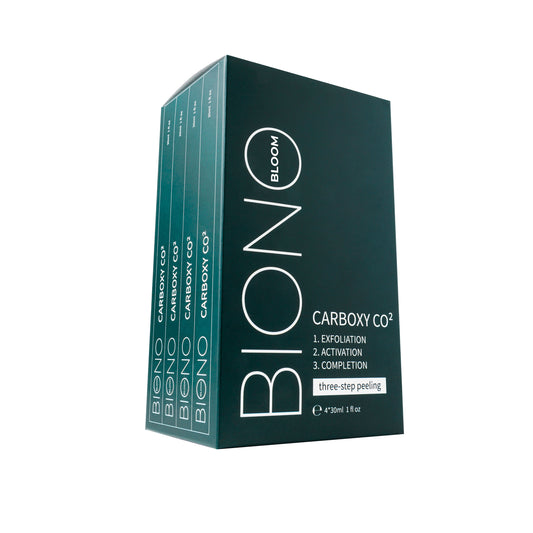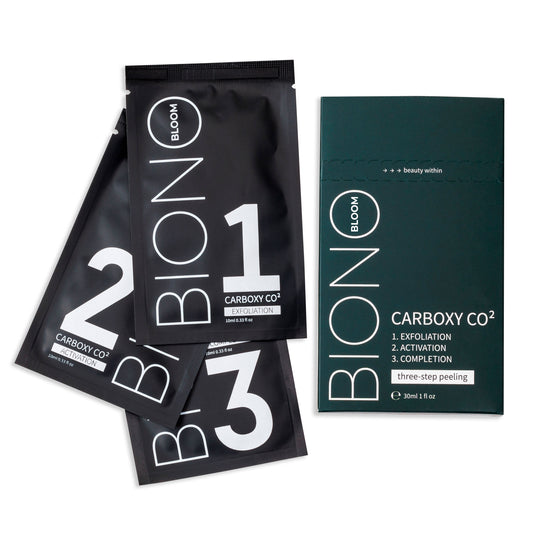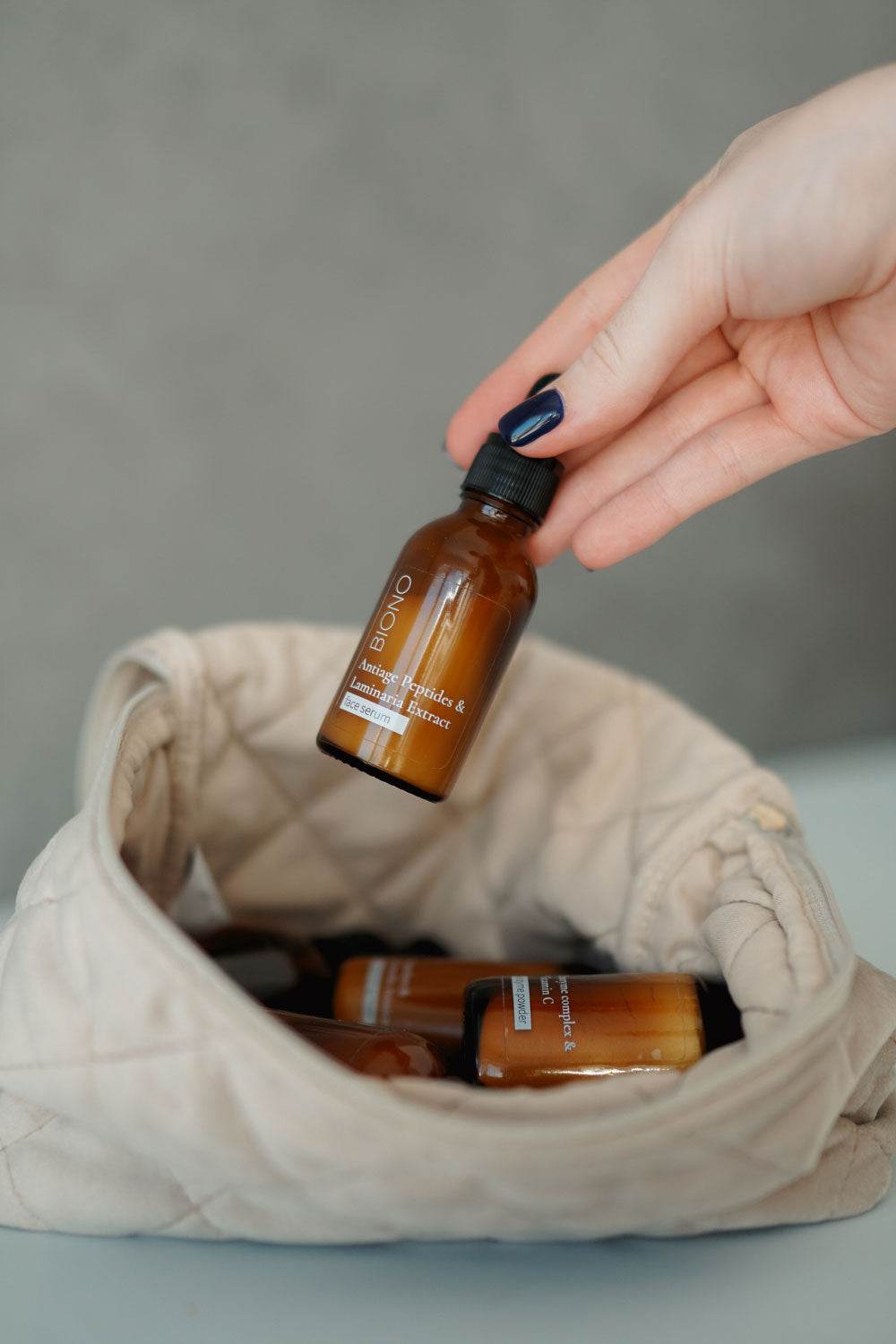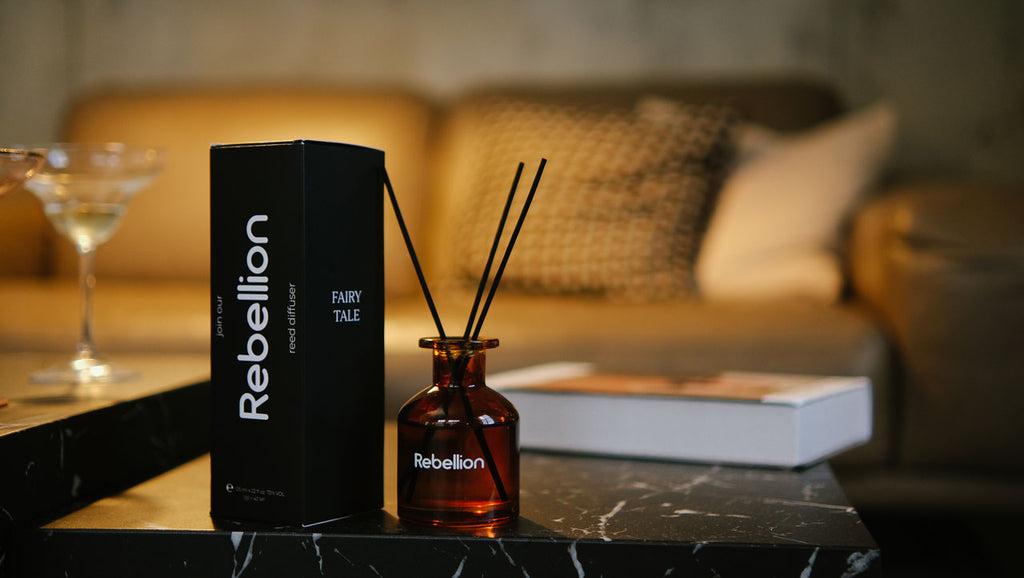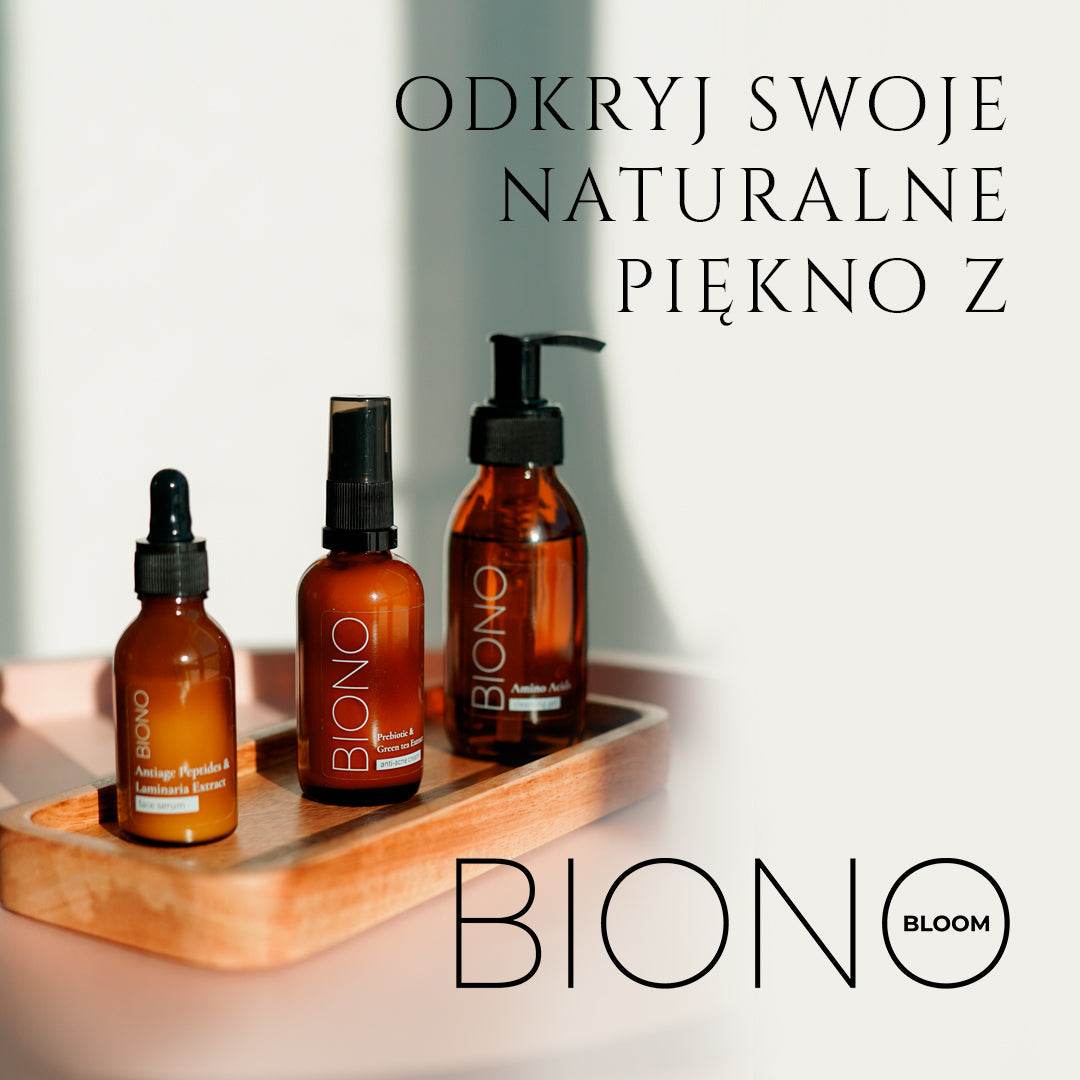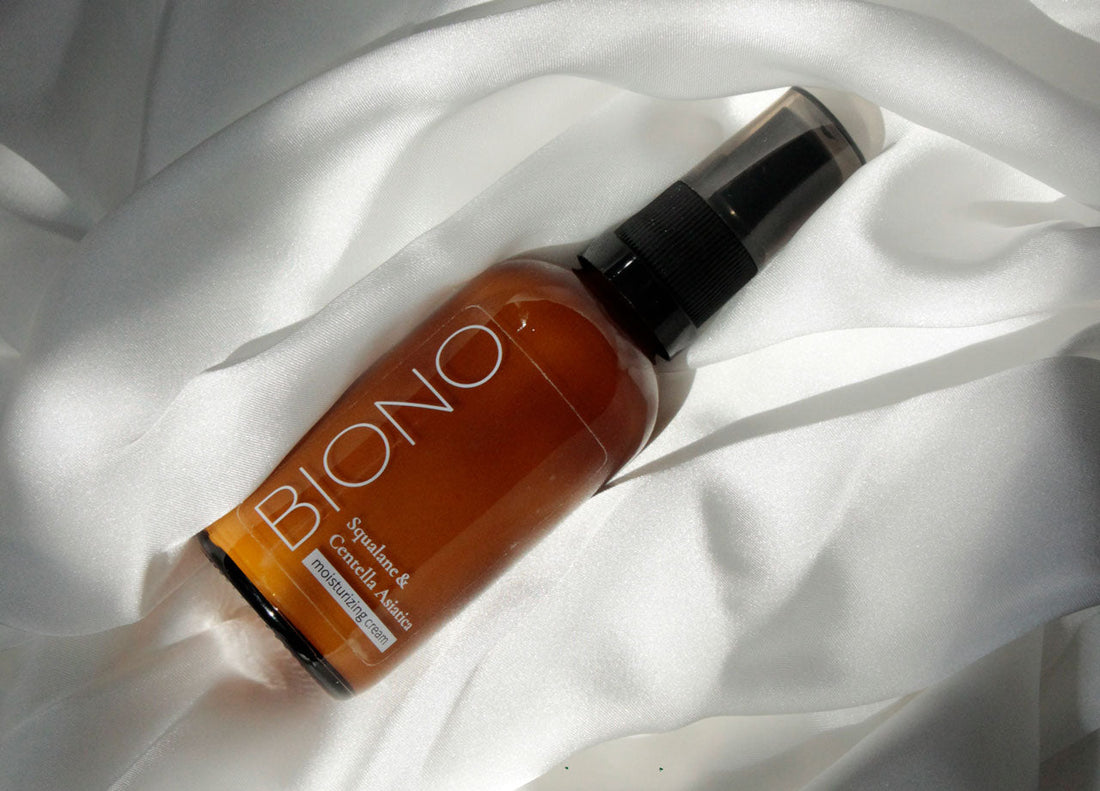
Anti-Wrinkle Cream After 40: A Comprehensive Guide to Mature Skin Care
Turning forty is the time when the skin begins to clearly signal its age-related needs. Natural aging processes accelerate, collagen production declines, and the first deep wrinkles become more visible. Choosing the right anti-wrinkle cream after 40 becomes a key decision in the fight for youthful appearance and healthy skin. It's not just a matter of aesthetics, but a conscious step toward preserving the skin's natural regeneration.
Skin changes after the age of 40 - what happens to our skin
Skin in our forties undergoes revolutionary changes that can be compared to the changing of the seasons – we move from spring to autumn, which has its own beauty but requires different care. The most significant change is a decline in collagen production by about 1% per year, meaning that after the age of 40, we lose a significant amount of this key protein responsible for skin elasticity and firmness.
Elastin, the second pillar of young skin, also begins to degrade faster than it regenerates. It's like rubber, which loses its elasticity over time—the skin stops "bounce" when squeezed, and facial wrinkles begin to form even when the face is at rest. This process is natural, but it can be significantly slowed down with the right active ingredients.

Another significant change is the slowing down of cell renewal. While young skin renews itself every 28 days, after the age of 40, this cycle lengthens to 45-60 days. This results in the accumulation of dead cells on the skin's surface, giving it a dull, gray tint and making it harder for anti-wrinkle creams to penetrate deeper layers. That's why, after 40, not only moisturizing but also gentle exfoliation becomes so important.
The most important active ingredients in creams after the age of 40
An effective anti-wrinkle cream for over 40 is a complex scientific formula, where each ingredient performs a specific function in combating the signs of aging. Understanding how these ingredients work helps you make informed choices that are tailored to your individual skin needs.
Retinol, called the "gold standard" in anti-aging skincare, acts like a personal trainer for skin cells. It stimulates cell renewal, increases collagen production, and evens out skin tone. However, retinol requires gradual introduction—start with low concentrations (0.25-0.5%) and use every 2-3 days initially to allow skin to adjust. It's like training for a marathon—you don't start by running the full distance.
Peptides are small protein fragments that act as messengers between skin cells, telling them to "produce more collagen" or "regenerate faster." Pentapeptides, hexapeptides, and copper tripeptide are different types of these molecular "instructions" that help skin behave more youthfully at the cellular level. Unlike retinol, peptides are gentle and can be used daily.
Vitamin C in its stable form (magnesium ascorbyl phosphate or ascorbyl glucoside) is a powerful antioxidant that protects against free radicals and brightens discolorations. It acts as a protective shield against everyday environmental aggressors. It works best in daily products because it strengthens the skin's natural defenses against UV radiation.
Types of wrinkles and targeted action of creams
Not all wrinkles are the same, and an effective anti-wrinkle cream for women over 40 should address the various mechanisms by which they develop. Understanding wrinkle types helps you choose a product with the right active ingredients.
Smile lines are formed by repetitive facial muscle movements—smiling, frowning, or frowning. After age 40, these "smile lines" become visible even without facial expression. Creams with neurotoxic peptides (like Argireline) can gently relax muscle tension, reducing the depth of these wrinkles without the need for invasive procedures.
Gravitational wrinkles are the result of a weakening of the skin's supporting structure. Cheeks sag, a double chin appears, and facial contours lose definition. Firming ingredients like arginine/lysine peptide, caffeine, and ginseng root extract are key here. These ingredients stimulate microcirculation and help "lift" skin tissue from within.
Effective ingredients for different types of wrinkles:
- Mimic wrinkles: argireline, snake peptide, hyaluronic acid of various molecular weights
- Gravitational wrinkles: palmitoyl tripeptide peptide, caffeine, sand dune extract
- Sun Wrinkles: Retinol, Vitamin C, Niacinamide, Resveratrol
- Dehydration wrinkles: ceramides, hyaluronic acid, glycerin, squalane
- Hormonal Wrinkles: Phytoestrogens, Bakuchiol, Biomimetic Peptide

Anti-wrinkle skincare routine - step by step
Effective anti-wrinkle care after 40 involves more than just applying a cream. It's a whole system of activities that complement and reinforce each other. Each step plays a role in maintaining youthful skin.
Your morning routine begins with a gentle cleanse that removes nighttime regenerative products and prepares the skin for the application of active ingredients. Use a gentle gel or milk that won't strip the natural hydrolipid barrier. After cleansing, apply a vitamin C serum—it's your daily dose of antioxidants that will prepare your skin for the day's challenges.
An anti-wrinkle cream with SPF is an absolute must in your morning routine. Even if you don't plan on long walks, UV radiation penetrates through windows and is a major cause of photoaging. Choose products with broad-spectrum protection (SPF 30-50) and anti-aging ingredients. It's like dressing appropriately for the weather—essential for maintaining healthy skin.
Your evening routine is a time for intense regeneration. Start with a double cleanse – first with a micellar oil or balm (to remove makeup and sunscreen), then with a cleansing gel (to remove impurities). Twice a week, gently exfoliate with AHA/BHA acids to accelerate cell renewal. Finally, apply a cream with retinol or peptides – it's a nightly "service" for your skin.
Mistakes in anti-wrinkle care after 40
Even the best intentions can lead to disappointing results if we make common mistakes in mature skin care. Recognizing and avoiding these pitfalls can drastically improve the effectiveness of the products we use.
The most common mistake is "too much, too soon"—introducing several powerful active ingredients at once. Skin after 40 can be more sensitive than in its youth, and product overload can lead to irritation, which paradoxically accelerates the aging process. It's better to introduce new ingredients gradually—one every 2-3 weeks—and observe the skin's reaction.
The second critical mistake is neglecting sun protection under the pretext that "it's too late for prevention." This is like claiming that just because it's raining, you don't need an umbrella. UV radiation remains the skin's main enemy at any age, and avoiding it can prevent further damage and allow the skin to regenerate.
Skipping the neck and décolleté is another common mistake. The skin in these areas is thinner and has fewer sebaceous glands, so it ages faster than the face. All products used on the face should also be applied to the neck and décolleté—treat these areas as extensions of the face, not as separate areas.

Natural alternatives for mature skin
Anti-wrinkle care doesn't have to rely solely on synthetic active ingredients. Nature offers powerful antioxidants and regenerative substances that can effectively support skin after 40, often with a reduced risk of irritation.
Bakuchiol, called "natural retinol," works similarly to retinol, but without the typical side effects like irritation or photosensitivity. Derived from the seeds of the babchi plant, bakuchiol stimulates collagen production and reduces wrinkles, and it's also safe to use during pregnancy and breastfeeding. It's like a gentle yet effective teacher for your skin—it delivers similar results to retinol, but with more patience.
Resveratrol from red grapes is a powerful antioxidant that protects against DNA damage in skin cells. It has the ability to activate genes responsible for cell longevity—the same genes that are activated during calorie restriction. In anti-wrinkle creams, resveratrol acts as a reset button for tired skin cells.
Natural ingredients with anti-wrinkle properties:
- Vegetable oils: argan (vitamin E), jojoba (ceramides), rosehip (vitamin C)
- Plant extracts: ginkgo biloba, green tea, pomegranates, ginseng root
- Natural peptides: from apple stem cells, marine extracts
- Plant ceramides: from rice, sunflower, soy
- Natural fruit acids: from sugar cane, lemon, blueberries
When to consider professional care support
Sometimes, even the most thorough home care routine requires the support of professional treatments. Recognizing when to consult a specialist can significantly accelerate visible results and optimize your cosmetics spending.
If you don't see satisfactory results after six months of consistent use of anti-wrinkle creams, it's worth consulting a dermatologist or cosmetologist. It's possible your skin needs stronger active ingredients that are only available in a beauty salon, or that the products you're using aren't suitable for your skin type.
The appearance of deep, static wrinkles—those visible even without facial expression—may require a combination of home care and professional treatments. Microneedling mesotherapy, acid peels, or radiolifting can "prepare the ground" for better penetration of home-made cosmetics. It's like preparing the soil before planting—sometimes you need tools you don't have in your home medicine cabinet.
Sudden changes in skin texture or color also require professional evaluation. Hormones, stress, medications, and illness can drastically affect skin condition, and a dermatologist can identify causes that go beyond simple aging and require a specialized approach.
Effective anti-wrinkle care after 40 is a marathon, not a sprint. It requires patience, consistency, and consciously choosing products tailored to your skin's individual needs. Remember, every skin is unique, and what works for a friend may not work for you. The key to success is observing your own skin's reactions, implementing changes gradually, and treating skincare as an investment in long-term health and beauty. The right anti-wrinkle cream is not just a cosmetic—it's a tool for maintaining self-confidence and well-being for decades to come.

